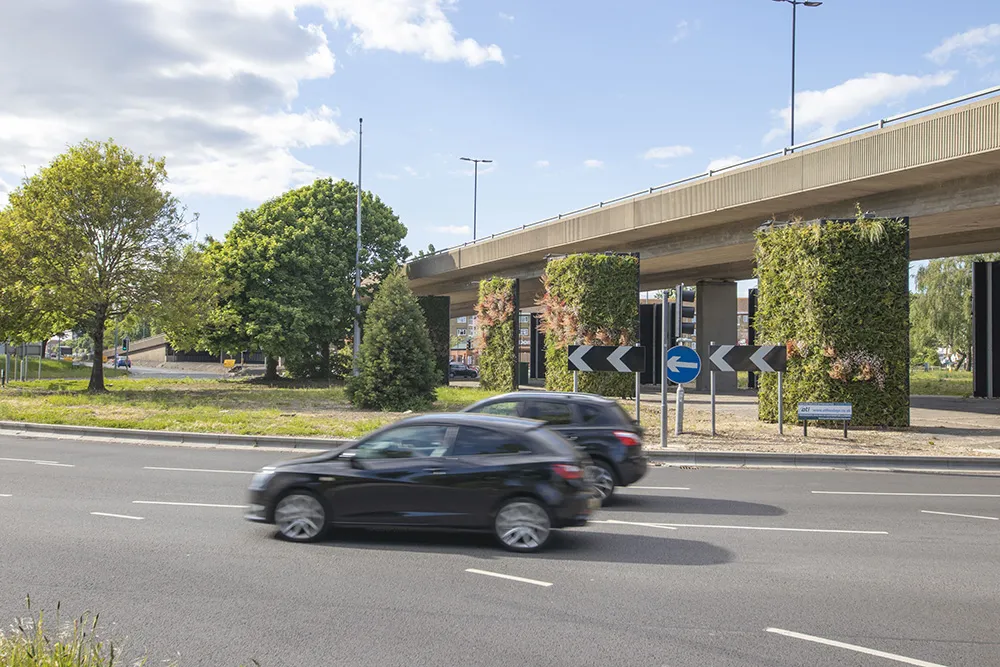Global infrastructure services firm AECOM has secured an eight-year contract with Highways England to work as its technical partner for the major A303 Amesbury to Berwick Down improvements scheme.
AECOM, working with its supply chain partners Mace and Mouchel, will deliver a range of multidisciplinary services to support all phases of the project, which will upgrade the eight-mile stretch of the A303 from single to dual carriageway to create a high-quality, reliable route to the south west, improve safet
April 12, 2017
Read time: 2 mins
Global infrastructure services firm 3525 AECOM has secured an eight-year contract with 8101 Highways England to work as its technical partner for the major A303 Amesbury to Berwick Down improvements scheme.
AECOM, working with its supply chain partners Mace and Mouchel, will deliver a range of multidisciplinary services to support all phases of the project, which will upgrade the eight-mile stretch of the A303 from single to dual carriageway to create a high-quality, reliable route to the south west, improve safety and help conserve and enhance the Stonehenge World Heritage site (WHS).
The project includes a proposed new tunnel alongside the site to improve the setting of Stonehenge and other important monuments within the WHS, as well as improvements to existing junctions between the A303 and the intersecting A345 and A360.
As technical partner, AECOM will support Highways England in the delivery of the project, providing highways and tunnelling design services, as well as environmental, heritage, noise, traffic modelling and procurement consultancy services.
The scheme is part of a wider strategy to create a new South West Expressway, which includes a package of improvements to the A303 that will support economic growth, generate employment and increase visitor expenditure.
The A303 forms the most direct route between London and the south west and is vital for the local and regional economy. With around 24,000 vehicles using the 35-mile single carriageway section of the road every day, bottlenecks, changes in speed limit, hidden accesses and staggered junctions make journey times unreliable. The accident rate on the A303 is also higher than on other similar roads. Upgrading the road to dual carriageway with motorway standard junctions will help improve journey times and safety, particularly in summer when the number of vehicles using the route increases significantly.
AECOM, working with its supply chain partners Mace and Mouchel, will deliver a range of multidisciplinary services to support all phases of the project, which will upgrade the eight-mile stretch of the A303 from single to dual carriageway to create a high-quality, reliable route to the south west, improve safety and help conserve and enhance the Stonehenge World Heritage site (WHS).
The project includes a proposed new tunnel alongside the site to improve the setting of Stonehenge and other important monuments within the WHS, as well as improvements to existing junctions between the A303 and the intersecting A345 and A360.
As technical partner, AECOM will support Highways England in the delivery of the project, providing highways and tunnelling design services, as well as environmental, heritage, noise, traffic modelling and procurement consultancy services.
The scheme is part of a wider strategy to create a new South West Expressway, which includes a package of improvements to the A303 that will support economic growth, generate employment and increase visitor expenditure.
The A303 forms the most direct route between London and the south west and is vital for the local and regional economy. With around 24,000 vehicles using the 35-mile single carriageway section of the road every day, bottlenecks, changes in speed limit, hidden accesses and staggered junctions make journey times unreliable. The accident rate on the A303 is also higher than on other similar roads. Upgrading the road to dual carriageway with motorway standard junctions will help improve journey times and safety, particularly in summer when the number of vehicles using the route increases significantly.









